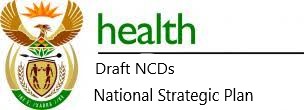
NCDs NSP policy list draft
The SANCDA developed this list to guide integrated person-centred care.

The SANCDA developed this list to guide integrated person-centred care.
NCDs Atlas of the NCD Alliance has recently been published. This showcases advocacy by civil society groups from around the globe. Four of the reports published in the Atlas became award winners at the Sharjah NCD conference in the areas of:
ADVOCACY
Coalición Latinoamérica Saludable – Rapid Regional Response to Strengthen and Defend National NCD Policies in Latin America
ACCOUNTABILITY
East African NCD Alliance – Benchmarking to Track and Advance Regional NCD Action
ACCESS
Healthy Caribbean Coalition – Building Civil Society Capacity to Improve Access to Cancer Services for Underserved Populations
AWARENESS
Tanzanian NCD Alliance – Creating a Journalists’ Forum to Raise Awareness on NCDs
The SANCDA report titled “Crafting a Collective Advocacy Agenda in Support of a Sugar-Sweetened Beverages Tax in South Africa”, is contained in the document.
This goes to highlight the journey, problems and lessons learnt in the collective creation of a sugar tax in South Africa.
The journey to getting the tax to work for South African’s has barely begun. The areas of work coming from its implementation in April will be to ring-fence money from the tax collected to help fund civil society in prevention, awareness and care.
The SANCDA is honoured to have been published in the NCDs Atlas and look forward to the next publication and furthering the movement to a sugar-free South Africa.
I started SADAG in 1994, at the encouragement of Prof Michael Berk, who was my psychiatrist. I had had massive Panic attacks for ten years without the right treatment, but when I got the treatment, (medication from the psychiatrist,) I became well within four weeks. It just goes to show what the right treatment can do for patients.
SADAG held its first meeting at Sandton Library on a Thursday morning and SADAG over filled the Sandton Library, at 11am.
I have been the founder from the beginning. Have a fabulous, small, active board who make quick decisions. Some have been with me for 18 years. Have a strong committed team of six staff.
SADAG would like to further develop our partnerships with the Department of Health, and education, instead of doing a huge volume of work on their behalf with no recognition or support. SADAG would like to establish an ombudsman on Mental Health with toll free lines, to investigate drugs not being available, as they currently are not at Helen Joseph or Tara, or Eastern Cape
The organisation will continue to develop more support groups, currently SADAG has 200 groups, and they put in place community skills and access to better treatment is very important. SADAG are aiming for 300 in the next 3 years. SADAG need more brochures in various languages and funding for speaking books on Bipolar and Schizophrenia for rural communities, very hard topic to understand. These books can be distributed, played, and replayed by patients, family members, and community groups.
Objective of the CSNNSR is to understand and assess the national response to NCDs written from a civil society advocacy perspective and indentifies progress, good practice and challenges. The CSNNSR is meant to complement and support government official surveillance, monitoring and reporting on NCDs.
The attached document contains the Civil Society National NCD Status Report outline and the NCD benchmarking tool.
The report will be completed in sections according to content, risk, factors and key stakeholder group. The Editor is Prof Harry Dugmore from Rhodes University School of Journalism. Click on the document icon below to download.
If you have any further questions or would like to be involved please contact Vicki Pinkney-Atkinson [email protected]
Introducing the SANCDA and This Meeting – Dr Victoria Pinkney-Atkinson SANCDA 2014